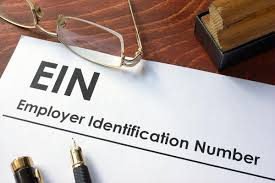People sometimes call an estate tax a “death tax” because it is based on the assets of a person who has died. What, then, is an estate tax return? What are the requirements for estate tax returns, and what’s peculiar to estate tax return in Maryland?
Continue reading to find out the answers to these questions!
What Is an Estate Tax?
In the US, there is an estate tax that is levied as a federal tax on the distribution of a decedent’s estate. Property that is passed via a will or, in the absence of a will, in accordance with state intestacy rules, is subject to the tax.
Some life insurance payouts and the opening of certain bank accounts are examples of other things that could be taxed. The federal unified gift and estate tax in the US includes the estate tax.
Transfers of property during a person’s lifetime are subject to the gift tax, which is the other component of the system.
Estate Tax Return
They impose a tax known as “estate tax” on a person’s right to transfer their estate to their legal heirs and beneficiaries at the time of death, as well as on some transfers that the law considers to be similar to a testamentary disposition.
It is not a tax on real estate. It is a charge placed on the right to transfer property after the death of the owner. Regardless of the delay in the beneficiary’s actual possession or enjoyment of the estate, the estate tax is determined according to the legislation in effect at the time of death.
A decedent’s family would submit an estate tax return after the taxpayer passed away. Similar to an income tax return, they filed an estate tax return with the IRS, and on it, the decedent’s family lists all the assets that person held at the time of death and their respective values.
Therefore, it can be thought of as a balance sheet that gives a snapshot of the decedent’s assets and values at the time of death. Basically, everything the deceased possessed would fall under this category, including real estate, bank accounts, accounts, closely held investments, stocks and bonds, insurance, retirement funds, etc. The restitution would encompass even tangible personal property.
Estate Tax Return Requirements
9 months following the decedent’s passing, an estate tax return is often required. Then, nine months have passed since the death. It might be automatically extended, like other tax returns.
Due to the lengthy process of gathering data and filing reports, there is an automatic 6-month extension that allows it to be filed, and is frequently filed, fifteen months after the date of death. If tax is owed, they must pay it within nine months or the IRS may levy penalties and interest.
If you do not pay the tax within nine months, it becomes due immediately. Currently, not every decedent is required to submit an estate tax return. The number of people who do is quite low.
You must only file a return if the value of your estate exceeds the appropriate estate exemption in the year of your death, which for 2021 is $11.7 million.
Read Also: TAX RELIEF SERVICES: What It Is, Cost and Free Tax Relief Services
The estate tax return takes previous lifetime gifts into account. As a result, if someone donated $5,000,000 during their lifetime, they have used some of their estate exemption from, leaving them with only $6.7,000,000 in assets to shelter after death.
A person is above the 11.7 threshold if they make 5 million in lifetime gifts and die with 7 million in assets, in which case they must file a tax return.
Few US taxpayers submit estate tax returns since hardly everyone has that kind of money.
In some cases, the surviving spouse will choose to file an estate tax return and choose portability so that the deceased spouse can claim any unused exemptions.
When Is Estate Tax Return Due?
If not extended, the return is due nine months after the date of death. It is then payable fifteen months after the date of death, following the 6-month extension. However, if a tax is owed, it must be paid nine months after the date of death.
What kinds of information do you usually ask the family and other advisors for when a client dies and you’re helping to manage their estate so that you can fill out this estate tax return?
On the death certificate, we can find most of the background information we need about the person who has died.
In the month of death, it’s not hard to go to a bank and get a statement for a checking or brokerage account. What the deceased owned on the date of death can be determined.
You must do an appraisal for real estate, family enterprises, and family farms in order to have a third party appraiser vouch for the worth of those closely held assets for which there is no open market.
Therefore, we gather all this information while working with the family, outside consultants, appraisers, CPAs, and financial institutions so that we may report the assets as well as deductions, like mortgages, on the return, which would help reduce the overall estate and possibly minimize the tax.
Who Must Fill a Maryland Estate Tax Return?
If you haven’t been given an extension by the Comptroller’s Office, you must send in the Maryland estate tax return within nine (9) months of the date the person died.
Be aware that regardless of whether an extension has been granted, you must make Maryland estate tax payments to the Comptroller of Maryland by the nine-month due date for the estate tax return.
The legally designated personal representative of the decedent’s estate must submit the return. Any additional personal representatives must jointly file the return if there are any.
If there isn’t a personal representative, anyone who has actual or apparent control over the deceased person’s property must make and file a return.
How Do I Submit My Estate Tax Return For Maryland? Also, when?
Fill out IRS Form 706, the federal estate tax return, for the date of the decedent’s death after determining whether a Maryland estate tax return needs to be filed for the estate. Even though you might not have to file the federal return with the IRS, you must still complete it.
Within nine (9) months of the decedent’s death date, or by the allowed extension date, file the return. Direct submission of the Maryland estate tax return to the Comptroller of Maryland is required.
Does Maryland Require an Estate Tax Return?
Few states have an inheritance tax, but Maryland is one of them. The tax primarily targets the right to receive property from a decedent. 10% of the gift’s value is taxed as inheritance in Maryland.
Maryland has an estate tax that may be due if you reside in the state and leave behind more than $5 million (for decedents who pass away in 2022).
Unlike the federal estate tax, which is only levied on estates valued by more than $12.06 million, the Maryland estate tax is distinct from that tax (for deaths in 2022).
How Much Is Estate Tax Return In Maryland?
The estate is not subject to tax in Maryland until it exceeds $5 million. They levy the estate tax at a rate of 16% on the portion that is greater than $5 million.
The estate tax is set up in such a way that your estate may wind up paying less than what corresponds to a 16% rate, but it would not pay more (compare this to the present federal estate tax rate of 40%).
To further establish the tax your estate owes, if you are a nonresident of Maryland, a ratio is employed, which is effectively the value of your Maryland-located property divided by the total value of your gross estate.
In the event that your inheritors also owe inheritance tax, they deduct the amount of inheritance tax paid from the estate tax due.
What Is The Tax Rate For Estate Tax?
The maximum tax rate is 40% depending on the worth of your estate
Who Are Required To File Estate Tax Return?
It is the responsibility of the personal representative to submit the estate tax return. If there is no personal representative, the return must be filed by the person who owns the dead person’s property.
The following are examples of personal representatives:
- Administrator
- Special Administrator
- Executor
- Personal Representative
- Alternative personal representative
- One who carries out nearly the same task daily is
What Happens If You Don’t Pay Estate Tax?
They do not pay estate taxes; they deny inheritors access to and benefits from any properties left by the deceased.
How Much Can You Inherit Without Paying Taxes In Maryland?
Maryland’s estate tax exemption will rise to $5 million in 2021. This implies that the estate owes nothing to the state of Maryland if you pass away and your total estate is less than $5 million.
What Is The Difference Between Estate Tax and Inheritance?
If the estate pays the right amount of taxes, the beneficiary shouldn’t have to pay taxes. The beneficiary, on the other hand, will have to pay taxes on any income that the estate gives them before it pays taxes on it.
An estate tax or inheritance tax is a tax that is paid when someone dies and their property is passed on to someone else. When a person passes away, their estate is subject to an estate tax, while their heirs are subject to an inheritance tax.
The main difference between inheritance taxes and estate taxes is who is responsible for paying the tax. On the other hand, estate taxes are based on the estate and not on who gets the person’s property after they die. A single estate tax return must be filed by the executor, and the estate’s funds are used to pay the tax.
Can I receive a longer period to pay the Maryland estate tax or file my return?
If the person needed to file the return is outside of the country, the Comptroller of Maryland may grant an extension of up to six months or up to a year. Additionally, there are provisions for offering an alternate tax payment schedule. The Maryland estate tax return must be filed by the deadline, and any requests for an extension must be made in writing.
How can I tell if a taxable transfer happens?
Any transfer made to a taxable person within the two years before the decedent’s death date is taxable.
Conclusion
This article has detailed what an estate tax return is and its requirements. I hope you now have a clear understanding of the estate tax return and its requirement?
- ESTATE TAX RETURN: Filing Estate Tax Return
- HOW TO REDUCE TAXABLE INCOME: Best Simple Strategies!
- WHAT IS EXCISE TAX & WHO PAYS IT?






